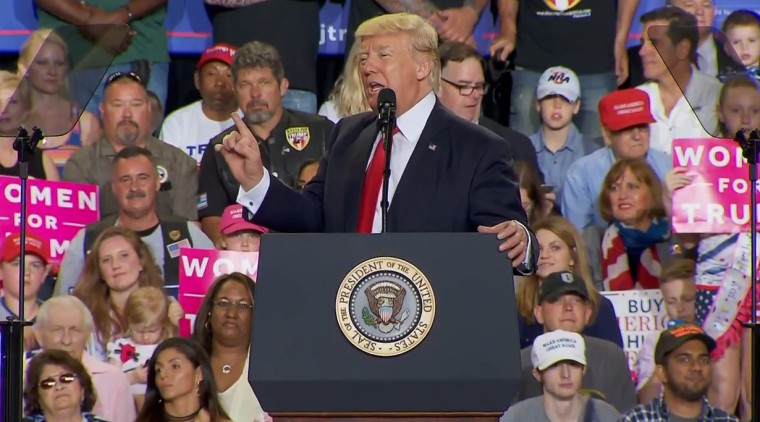Barack Obama had quite a bit to say last week about the latest Republican health care plan, but the former president specifically made the case that "if there's a chance you might get sick, get old, or start a family," the GOP legislation "will do you harm." Minor tweaks, he added, "cannot change the fundamental meanness at the core of this legislation."
The written statement brought to mind Donald Trump's reported comments to senators, to whom the president described the House-passed health care overhaul as "mean," "cold-hearted," and a "son of a bitch" in a recent private meeting.
But did Trump really call the legislation he publicly celebrated "mean"? Whether Obama intended to bait his successor or not, the president admitted in yet another Fox News interview that the reports were true.
"Well, [Obama] used my term, 'mean.' That was my term because I want to see -- and I speak from the heart -- that's what I want to see. I want to see a bill with heart."
Trump was so eager to claim branding credit for himself, he ended up publicly confirming an assessment that made his own House allies look bad. The president also didn't do himself any favors: Trump initially described the House GOP bill as a "great plan" that he backed with enthusiasm. Now we know he didn't like the legislation after all.
There's a substantive angle to this that's worth watching: Trump is now saying all kinds of nice things about the Senate Republicans' bill, but if it passes and it's poorly received, the president is making clear right now that he'll turn around and condemn it later, separating himself from a policy the American mainstream may perceive as cruel.
In other words, if you're an on-the-fence Senate Republican weighing your options, Trump is making clear that he'll sell you out in a heartbeat in the hopes of saving his own skin.
Also over the weekend, the president, who's made practically no effort to defend the GOP proposal on the merits, apparently thought it'd be a good idea to change the subject, complaining about increased costs for some consumers under "Obamacare."
I realize, of course, that the president doesn't have any working understanding of the substance of the health care debate, and he hasn't yet invested any time in learning even the most basic details of the proposals he claims to support. But if this is going to be an arrow in Trump's rhetorical quiver, he should at least try to understand how problematic this argument is.
If increased consumer costs are the reason he doesn't like the ACA, he should hate the Republican "solution": it raises deductibles, by design, and would likely increase premiums for many.
In other words, Trump has decided to condemn the Affordable Care Act in a way that makes his own solution look worse. If the president weren't indifferent to the way governing works, he wouldn't make mistakes like these.
